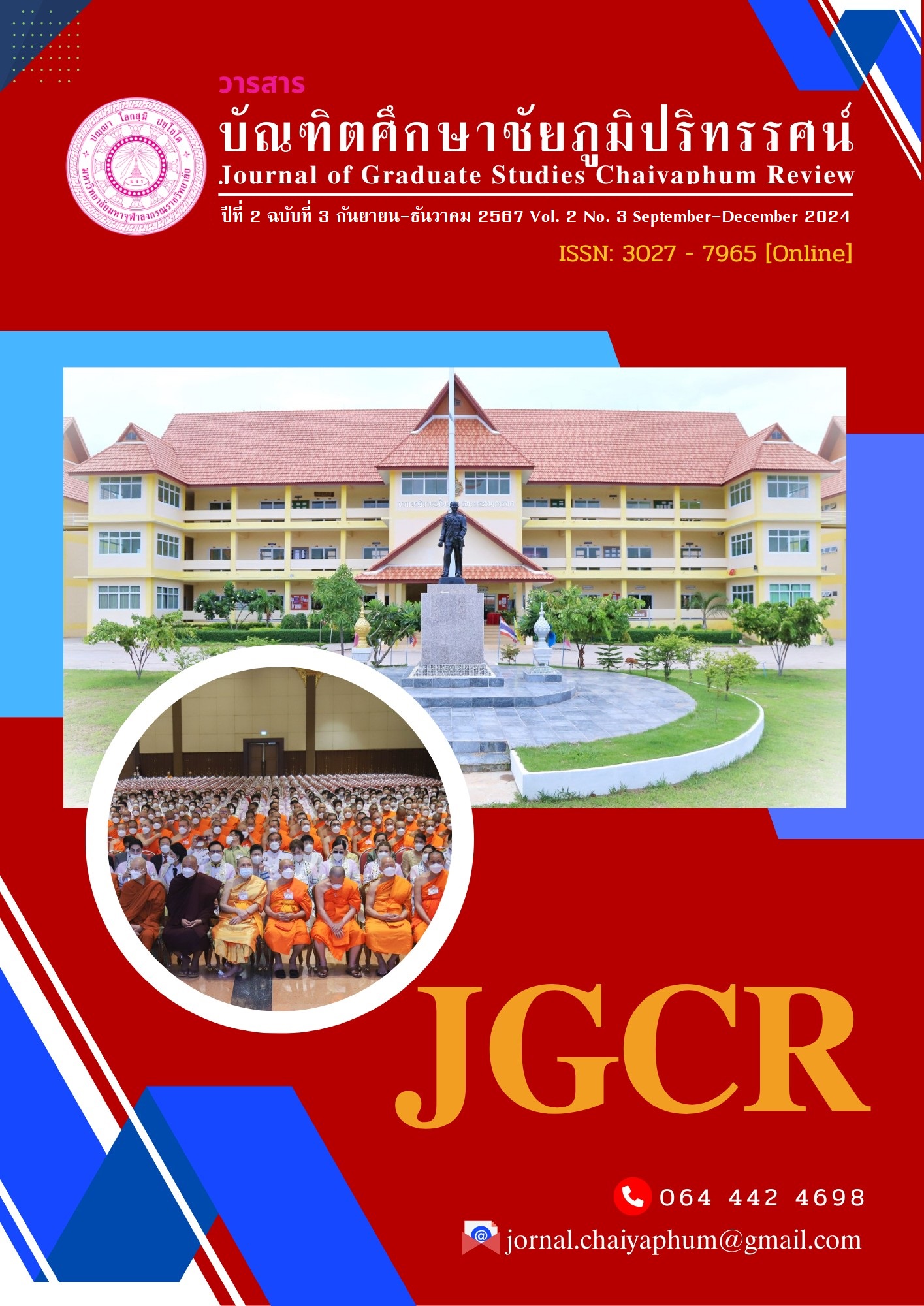LEADERSHIP IN COMMUNITY DEVELOPMENT OF OFFICIAI MONKS ACCORDING TO THE PRINCIPLES OF SAPURISADHAMMA
Keywords:
Leadership, Community Development, , Officiai MonksAbstract
This article is written to study the leadership of the Officiai Monks in community development by integrating with the principles of Sappurisadhamma. It was found that: Buddhism is important to Thai society and plays a role in the community. By training morality, ethics, and goodness for people in society and communities. Provide public assistance according to the needs of the people. With the teachings of the Lord Buddha. Monks regard it as one of the Triple Gem at the heart of Buddhism. Monks are considered to be recognized leaders for the community. Monks besides doing their own duty to purify their own defilements. You must also perform duties for the community. With truth the life of the monks is closely related to the community in terms of living and being dependent on the villagers. At the same time as Monks must give back to the community as the Lord Buddha said. Monks, you must travel. For the benefit and happiness of the public to be kind to the people of the world.
There are 4 aspects of leadership in community development of the Officiai Monks according to the Sappurisadhamma principles: 1) Development of people's minds by applying the principles of Sappurisadhamma the Officiai Monks should preach and teach the people to understand the principles and be able to apply them in their daily lives. 2) Educational welfare by applying the principles of Sappurisadhamma the Officiai Monks should establish a relief fund and distribute scholarships to children and youth. 3) Public welfare by applying the principles of Sappurisadhamma the Officiai Monks should facilitate people in performing charitable and unwholesome works. 4) Promoting arts and culture by applying the principles of Sappurisadhamma the Officiai Monks should promote precepts, traditions, and culture. They should organize activities that reflect the identity and wisdom of the local area.
References
ฉลอง พันธ์จันทร์ ธีระพงษ์ มีไธสง และอภิญวัฒน์ โพธิ์สาน. (2553). “การส่งเสริมศักยภาพของพระสงฆ์ในการพัฒนาชุมชนบ้านท่าขอนยางอำเภอกันทรวิชัย จังหวัดมหาสารคาม”. วารสารมนุษยศาสตร์และสังคมศาสตร์มหาวิทยาลัยมหาสารคาม. ปีที่ 29 ฉบับที่ 1 มกราคม-เมษายน.
ชูชัย สมิธิไกร. (2538). การพัฒนาบุคคลกรด้วยกลุ่มสร้างสรรค์ความงอกงามทางจิตใจ. เชียงใหม่ : คณะมนุษยศาสตร์มหาวิทยาลัยเชียงใหม่.
พระธรรมกิตติวงศ์ (ทองดี สุรเตโช). (2555). วิถีพุทธเฉลิมพระเกียรติ แนวคิด แนวทาง แนวทำ : โครงการสนับสนุนวัดเป็นศูนย์กลางสร้างสุขของชุมชน. กรุงเทพมหานคร : กรมการศาสนา.
พระมหาสุระพงษ์ สุรวํโส. (2555). “ภาวะผู้นำของพระสงฆ์ในการบริหารการพัฒนาชุมชน”. วิทยานิพนธ์ศิลปศาสตรมหาบัณฑิต สาขาวิชาการบริหารการพัฒนาสังคม. บัณฑิตวิทยาลัย : มหาวิทยาลัยบัณฑิตพัฒนบริหารศาสตร์.
พระราชพุทธิญาณวงศ์. (2540). คู่มือวิทยากรอบรมพระสังฆาธิการระดับเจ้าอาวาส. กรุงเทพมหานคร : อาธรการพิมพ์.
มหาจุฬาลงกรณราชวิทยาลัย. (2539). พระไตรปิฎกภาษาไทย ฉบับมหาจุฬาลงกรณราชวิทยาลัย. กรุงเทพมหานคร : โรงพิมพ์มหาจุฬาลงกรณราชวิทยาลัย.
วีระยุทธ ยะสาย และคณะ. (2561). “บทบาทของพระสังฆาธิการในการบริหารกิจการคณะสงฆ์ เขตอำเภอบางปะอิน จังหวัดพระนครศรีอยุธยา”. วารสารครุศาสตร์ปริทรรศน์. ปีที่ 5 ฉบับที่ 2 พฤษภาคม-สิงหาคม.
สุเทพ เชาวลิต. (2542). หลักการพัฒนาชุมชน. กรุงเทพมหานคร : สำนักพิมพ์โอเดียนสโตร์.
สุเทพ พงศ์ศรีวัฒน์. (2544). ภาวะผู้นำทฤษฎีและปฏิบัติ ศาสตร์และศิลป์สู่ความเป็นผู้นำที่สมบูรณ์. กรุงเทพมหานคร : สำนักพิมพ์วิรัตน์ เอ็คดูเคชั่น.
สำนักงานพระพุทธศาสนาแห่งชาติ. (2561). พระราชบัญญัติคณะสงฆ์ พ.ศ. 2515 และที่แก้ไขเพิ่มเติม (ฉบับที่ 4) พ.ศ. 2561. กรุงเทพมหานคร : โรงพิมพ์สำนักงานพระพุทธศาสนาแห่งชาติ.
Downloads
Published
How to Cite
Issue
Section
License
Copyright (c) 2024 Journal of Graduate Studies Chaiyaphum Review

This work is licensed under a Creative Commons Attribution-NonCommercial-NoDerivatives 4.0 International License.




